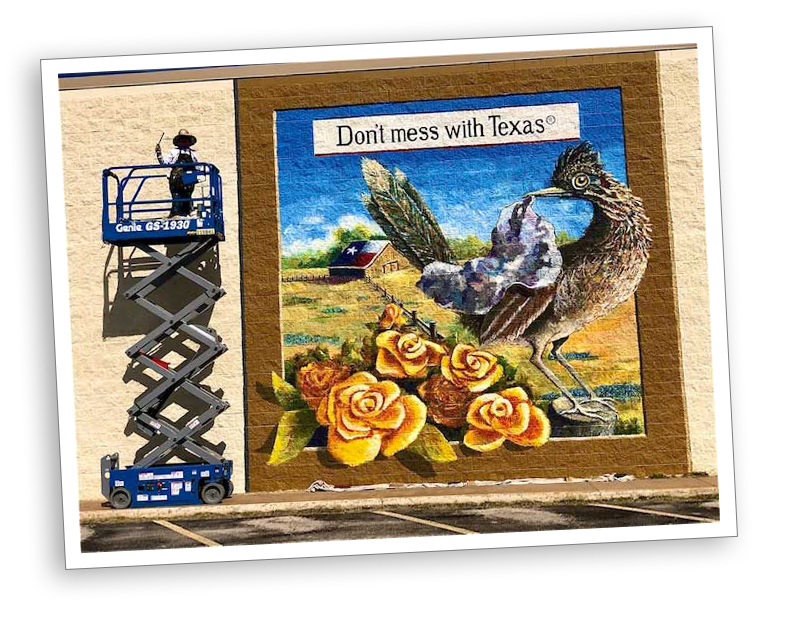Blog – Make your pledge: Inspiring Texas students to protect their future
January 3, 2025
The Don’t mess with Texas campaign isn’t just about roadside cleanliness — it’s about shaping a culture of environmental responsibility. Teachers have the unique ability to inspire their students to take action, making them key allies in the fight against litter. By integrating this message into the classroom, educators can empower students to make personal commitments to keep Texas clean, helping them understand the direct consequences of their actions on their environment and community.
Teachers play a crucial role in this initiative by helping our youth understand the importance of keeping Texas clean. The Don’t mess with Texas campaign offers custom lesson plans in English and Spanish and engaging activities designed specifically for classrooms from pre-K through high school. These resources, available on the Don’t mess with Texas website, provide educators with ready-to-use tools to teach students about litter prevention and their role in protecting Texas’ beauty.
Beyond the classroom, the program also helps students see the broader effects of littering — especially on roads and highways, which bear the brunt of the problem. This blog post highlights the resources available through Don’t mess with Texas and explores how littering affects Texas’ roads, public safety, and the efforts required to keep the state clean.
Why roads and highways matter in the fight against litter
Don’t mess with Texas call to action isn’t just about cleaning the litter on roads and highways — it’s about stopping litter before it starts. When students understand the impact of their actions, they see the bigger picture of why keeping Texas clean is important for everyone. The focus should always be on prevention and personal responsibility, which ties directly to the core message of Don’t mess with Texas.
Environmental impact
Protecting wildlife before litter becomes a threat
Litter that lands on roads often gets blown into nearby fields, rivers, and natural habitats, where it can affect wildlife. By emphasizing the importance of not littering in the first place, we can help protect animals from ingesting or getting trapped in waste like plastic. Teaching students that the best way to safeguard wildlife is by preventing litter from entering the environment in the first place makes a huge difference.
Keeping waterways clean from the start
Texas’ highways run near rivers, lakes and creeks. When litter is discarded on the roadside, it eventually pollutes these water systems. Litter leads to contamination, endangering aquatic life and reducing the availability of clean water. Teaching students the importance of keeping trash out of our environment promotes a proactive approach to preserving water quality.
What It Takes to Keep Texas Clean
Avoiding the high cost of litter cleanup
Every year, Texas spends $50 million to clean up litter along highways. By choosing not to litter, students learn how their small, everyday actions can ease this financial burden and help direct more resources toward education, infrastructure and community services, creating a cleaner, more beautiful Texas for everyone.
Keeping Texas beautiful for tourists and businesses
Preventing litter helps maintain the natural beauty that attracts visitors and supports local businesses. By taking pride in not littering, students help ensure Texas continues to be a destination known for its clean roads, vibrant cities and beautiful landscapes. Clean roads begin with personal responsibility, which contributes to a positive image of the state.
Preventing road hazards before they happen
Loose debris can cause accidents
Items like plastic bags or glass bottles left as litter on the roadside can easily be blown into traffic. These objects can obscure visibility, get caught on vehicle parts or cause sudden swerves, leading to accidents. Teaching teens to prevent littering helps them understand they’re contributing to safer roads for themselves and others.
Safer driving starts with responsible habits
When teens learn to drive, they’re also learning responsibility — not just for their own safety, but for everyone sharing the road. Emphasizing that throwing trash out of the car window or improperly securing waste in a vehicle directly contributes to accidents reinforces the importance of accountability behind the wheel.
Avoiding long-term consequences
Litter can also clog storm drains and lead to flooding, creating treacherous conditions for new drivers. By keeping trash out of the environment, teens can help prevent these hazards, ensuring drier, safer roads.
Bringing litter prevention into the classroom
Educating students about road and highway litter is a meaningful way to foster environmental responsibility and inspire action. The Litter Facts page on DontmesswithTexas.org provides valuable information for teachers to use in lessons on litter prevention and its effects on communities and the environment.
Teachers can further enhance their classroom discussions with the free, ready-to-use, TEKS-approved lesson plans and resources mentioned at the top of this blog. By incorporating the Don’t mess with Texas campaign into their lessons, educators can help students understand the importance of keeping Texas litter-free and the broader consequences of litter on roads, highways, and the state’s resources. Encourage your students to take part in the solution—download the lesson plans today and make a lasting difference for Texas!
Committing to keeping Texas roads clean
Encouraging students to make their own commitment to the Don’t mess with Texas litter-free lifestyle can be a powerful way to solidify their dedication to preventing litter, especially on Texas roads and highways. This personal pledge reflects an individual choice to live a litter-free life and inspire others to do the same.



